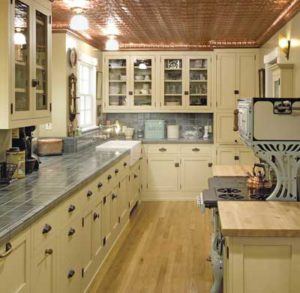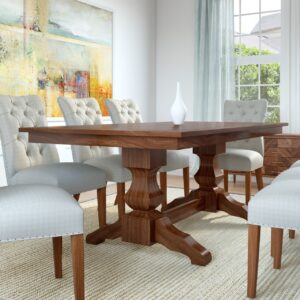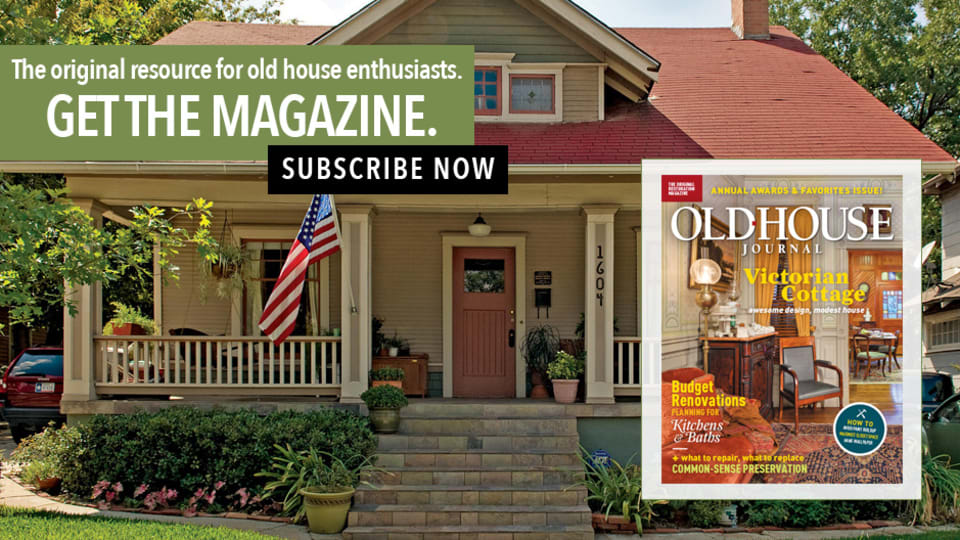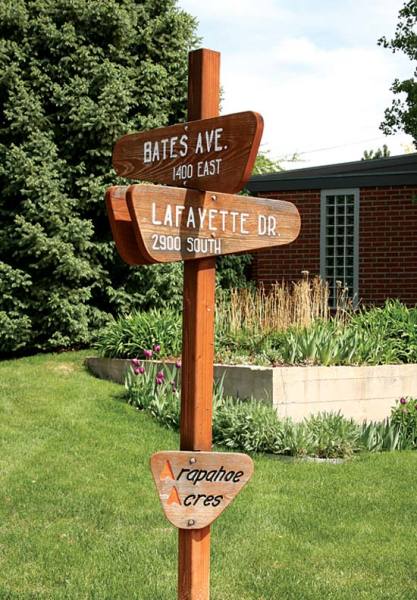
Groovy wooden signs mark the streets in Arapahoe Acres, south of Denver.
In the years following World War II, the surging popularity of modernism, combined with a swelling number of middle-class families looking for homes, set the stage for the creation of several affordable, livable, and aesthetically edgy neighborhoods. Northern California developer Joseph Eichler was perhaps the most prolific mid-century mastermind (more than 10,000 homes in the Bay Area are attributed to him), but pockets of modernism sprang up all across the country during the 1950s—in some cases, directly influenced by Eichler himself. We’ve rounded up five of the most famous mid-century modern communities, all of which are still as sought-after today as when they were built.
Hilltop
Bellevue, Washington
Founded in 1946 by a collective of forward-thinking architects, this 39-home intentional community still functions much as its designers intended it to, with residents coming together regularly to hammer out community issues and hold social events. Plotted on rectangular concrete platforms—used in the early days for camping by Hilltop’s founders, and later converted to slab-on-grade foundations—the houses of Hilltop are purposefully simple, defined by their boxy shape and large expanses of windows designed to take in stunning views of Lakes Sammamish and Washington.
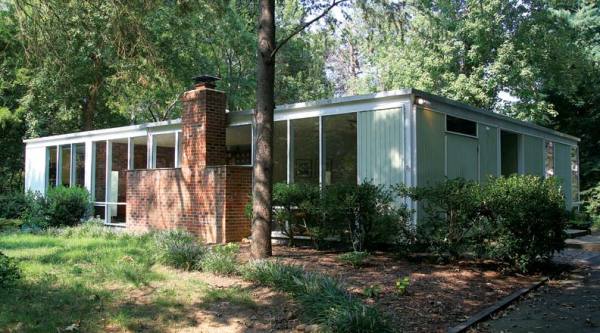
The walls of glass on houses in Hollin Hills are often referred to as “Hollin Hills windows.”
Hollin Hills
Alexandria, Virginia
A leafy enclave just south of Washington, D.C., Hollin Hills was conceived by Robert Davenport, a former government employee who took up homebuilding after World War II. Davenport picked architect Charles Goodman to design the houses for Hollin Hills, all of which made the most of the neighborhood’s hilly terrain. Split-level houses set on steep grades are the norm in Hollin Hills; most have floor-to-ceiling banks of windows that frame the verdant landscape.
Conantum
Concord, Massachusetts
Founded by an MIT professor on idealist principles (the name of the community was taken from Thoreau, and it was one of the first in the U.S. to include an anti-discrimination clause in its bylaws), Conantum was developed by the prolific architect Carl Koch, who was also responsible for several other mid-century developments in the greater Boston area. Conantum was Koch’s largest development, boasting 100 homes scattered over 190 acres. It was at Conantum that Koch refined his prefab design system known as Techbuilt; his two-story houses feature steeply pitched roofs, deep eaves, and copious windows.
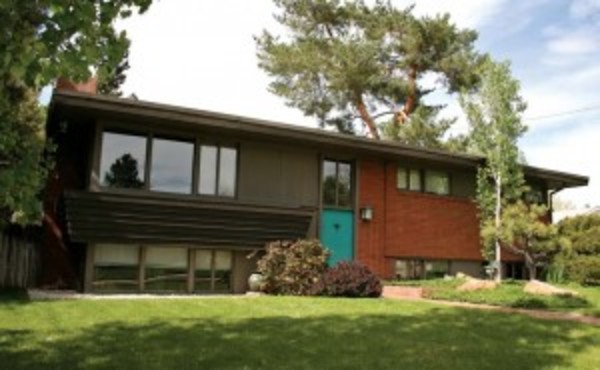
Many of Arapahoe Acres’ houses were inspired by Frank Lloyd Wright.
Arapahoe Acres
Denver, Colorado
The first mid-century development to be placed on the National Register, this beloved Colorado community (located in the suburb of Englewood) was the brainchild of developer Edward B. Hawkins. The homes Hawkins created—with help from architects Eugene Sternberg and Joseph Dion—often give a subtle nod toward Frank Lloyd Wright’s Usonian designs (Hawkins became a fan of Wright while living in Chicago as a young man) and typically feature an eclectic mix of exterior cladding, including brick, plywood panels, concrete block, and board-and-batten siding.
Krisana Park & Lynnwood
Denver, Colorado
Not quite as famous as Arapahoe Acres—perhaps due to the fact that they’re tucked within the otherwise nondescript South Denver neighborhood of Virginia Village—the communities of Krisana Park and Lynnwood were developer H.B. Wolff’s attempt to mimic Joseph Eichler’s popular California developments. In fact, most of the 250 or so modernist houses in these two mid-1950s neighborhoods are direct copies of original Eichlers, featuring open floor plans, glass walls, redwood siding, and plenty of outdoor living space.




